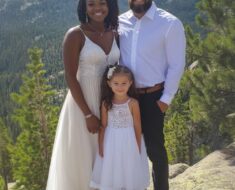In the age of endless headlines and infinite scroll, it’s hard to know what’s real anymore. One minute, your feed is screaming that two spoons on an empty stomach can melt twelve pounds of fat. The next, it’s whispering that Oprah Winfrey has vanished, retired, died, or reinvented herself. By the time you finish scrolling past hair-growth miracles, fungus cures, and “one cup before bed” weight-loss hacks, you’ve already forgotten what you came for.

This digital fog is the world we live in now — and Oprah, of all people, sits right at the center of it.
When rumors began circulating online about her health, the response was instant and frenzied. Posts popped up across social media, claiming “inside sources” and “exclusive details.” Some were outright hoaxes, others were half-truths dressed in concern. Fans flooded comment sections with prayers, tributes, and memories. A few shared long paragraphs about how Oprah’s interviews or her book club had changed their lives. Others demanded clarity. Everyone, it seemed, wanted to know something, but no one really knew anything.
Major outlets scrambled to verify the story. Newsrooms hesitated, double-checking every quote and timestamp. Nobody wanted to get burned chasing gossip about one of the most respected figures in media. It wasn’t just about Oprah — it was about credibility. In a world where the loudest voice often wins, accuracy has become the quiet rebel.
And yet, the clicks kept coming. Each vague headline pulled thousands more into the speculation loop. Every recycled “update” drove more engagement. It’s the perfect storm: emotional subject, public figure, and the irresistible lure of uncertainty. People don’t just consume stories like this anymore — they participate in them. They repost, react, debate, and in doing so, they keep the machine running.
While the digital noise grew louder, Oprah stayed silent. Her absence — or rather, the absence of official confirmation — only fueled the speculation. Comment sections turned into battlegrounds. Was she fine? Was this another celebrity hoax? Had she chosen to step away from the spotlight?
The truth is, Oprah Winfrey doesn’t need to say much to move a global audience. For decades, she’s been more than a talk show host — she’s a cultural landmark. Her interviews shaped how people thought about trauma, race, and healing. Her book recommendations could turn obscure authors into bestsellers overnight. Even now, long after The Oprah Winfrey Show ended, her influence lingers in every podcast, every self-help shelf, every “manifestation” trend repackaged for TikTok.
So when something happens — or is rumored to happen — to Oprah, the world notices.
That says something uncomfortable about us. We crave authority and empathy, but we also feed on drama. We build up the people we admire, then dissect them the moment they go quiet. It’s not malice, exactly — it’s momentum. The internet never stops. It just pivots.
Take the average viral site: one paragraph about Oprah sandwiched between “men, you don’t need Viagra if you do this once a day” and “this hair care tip is going viral.” The platform doesn’t care whether you’re reading about a humanitarian or a hair serum; it just needs your attention long enough to serve another ad. That’s the modern ecosystem — a marketplace where truth competes directly with gimmicks, and the metrics don’t differentiate between the two.
Even the legitimate stories — the ones about real people and real moments — get drowned out. A man finding his daughter after 31 years, a baby thought to be stillborn suddenly crying in his brother’s arms — powerful human stories, buried between banner ads and fake cures. It’s not that people don’t care. It’s that they’re overwhelmed. Attention has become fragmented into microscopic slices, and every click costs another second of focus.
Meanwhile, the platforms profit from the confusion. Algorithms don’t reward clarity — they reward engagement. Outrage, shock, and fear spread faster than nuance. And so, sites that once promised journalism now look like patchworks of desperation, each headline competing for oxygen.
But the Oprah story, fake or not, highlights something deeper: the world still wants meaning. Beneath the noise, there’s a collective hunger for authenticity — for voices that feel grounded, human, and trustworthy. Oprah represented that for millions. When she spoke, people listened. She made empathy mainstream. That’s why her silence feels louder than any denial could.
Eventually, credible outlets will confirm or deny whatever truth sits behind the rumors. They always do. But the story won’t really be about her. It’ll be about us — about how we react when we don’t know what’s true. Do we pause and wait for facts? Or do we click, share, and speculate until the next distraction arrives?
If history is any guide, Oprah will probably reappear with grace, address the chatter in her own time, and turn the moment into a lesson about patience, truth, and presence. She’s done it before. Her ability to turn chaos into clarity is, in many ways, what made her a legend in the first place.
But maybe the real takeaway isn’t about her comeback at all. Maybe it’s about how easily we’ve traded discernment for dopamine. We scroll past genuine stories — of survival, invention, loss, and love — because they don’t scream loud enough. We reward algorithms that manipulate us. And we pretend we’re informed, when really, we’re just entertained.
The digital world has become a mirror reflecting our collective attention span. And that mirror isn’t flattering.
So yes, maybe Oprah will speak soon. Maybe she’ll turn another rumor into a reminder that authenticity still matters. Until then, the rest of us might want to take a breath, scroll a little slower, and ask a simple question before clicking the next headline that promises everything but delivers nothing:
Who’s actually telling the story — and why?
Because in the end, it’s not just about Oprah, or the next celebrity rumor, or whatever miracle drink is supposed to melt fat overnight. It’s about whether we still know the difference between being informed and being manipulated.
And right now, that difference is disappearing fast.





